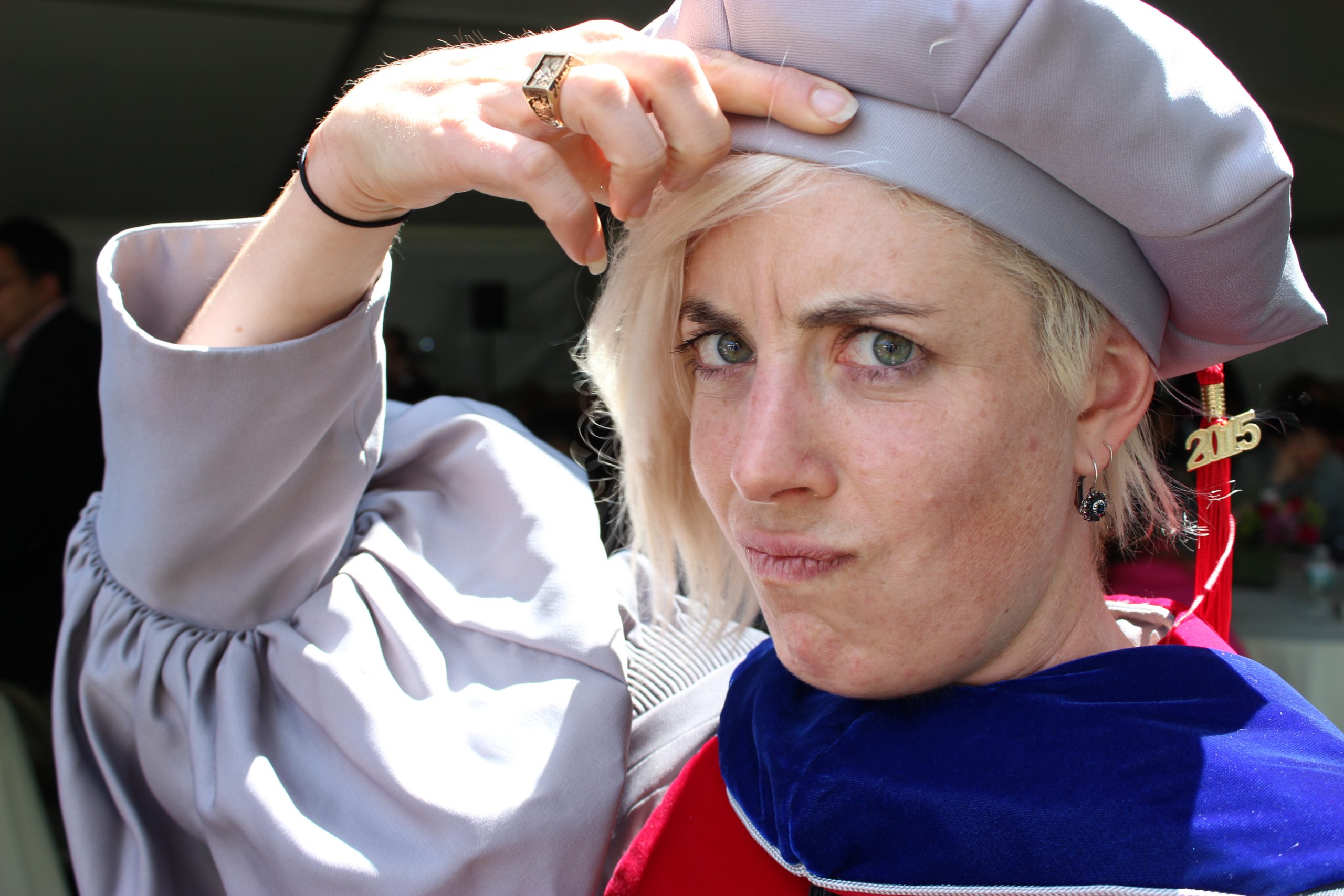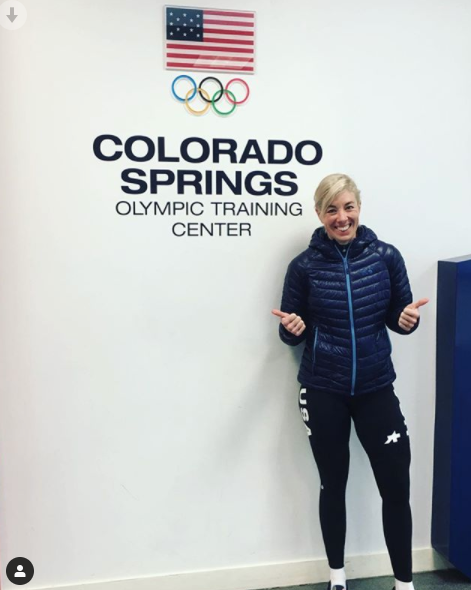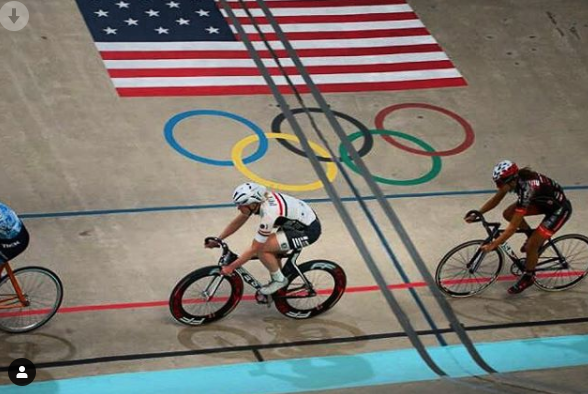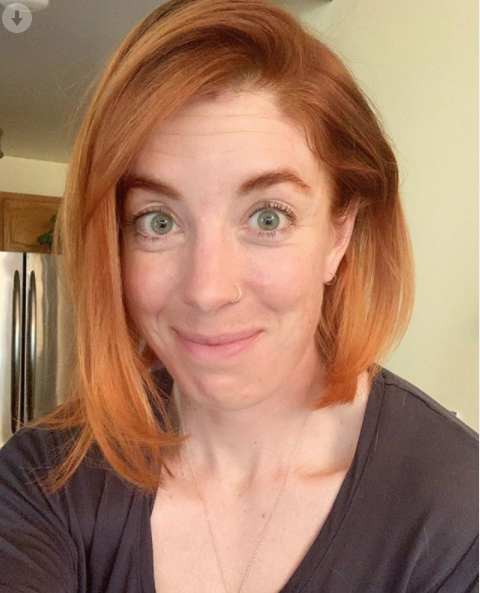- How you doing? Ok I hope.
I am doing [insert: different ends of the spectrum on different days]. - Where are you spending these days, besides on a roller?
Normally, I spend my time in LA (where I live and train) or at the Olympic Training Center in Colorado Springs (where I have resident status). With final Olympic selections on hold for another 12 months, I decided to leave the OTC and LA for a bit. I’m currently in Arizona, helping my dad repair the house I grew up in, and I’ll be in Montana on our family’s ranch in time for haying season this summer. - After your PhD you did some teaching iirc. What did you take from that experience?
After graduating in 2015, I taught bioengineering at UC Riverside for a year before moving to Caltech for two years as a STEM Writing Specialist (think: MIT Comm Lab) and lecturer in engineering. I absolutely loved teaching, but that first year at UCR was one of the hardest in my professional life! I think everyone should be a teacher at some point… get personally invested in helping others learn and grow. At UCR, I taught nine classes (all while training) which was a bit ambitious. I developed almost all of my own teaching materials de novo, designed new courses, managed senior design groups, answered student knocks on my door at 10pm, and even had to teach myself material so I could teach a class! (Remember “Fields, Forces, and Flows?” I thought I had gotten out of having to take that class at MIT, but I ended up teaching myself the material so I could teach the undergraduate version!) My UCR students seemed to have a bit of an “underdog” attitude; I pushed them hard and tried to give them the encouragement and support needed. All my students succeeded against their individual struggles in the course, and I got to see their confidence and satisfaction grow. Feeling like I had a small part in empowering my students with critical thinking skills or self-efficacy is, hands-down, the most rewarding thing I have done in life. - So, Tokyo 2020 becomes Tokyo 2021. As a scientist, did you see that coming?
Yes, starting in February, I strongly suspected the Olympics would not be held in 2020. Ironically, I had just watched the Netflix “Explained” episode on “The Next Pandemic” back in December on my return flight from the Brisbane World Cup. I had done some additional reading about the public health response in China during the SARS outbreak and the lessons they learned from it. When I read about what people then called “drastic” measures they were taking in Wuhan, early this year, I thought, “Oh boy, this is going to be big.” Of course, as an athlete, you have to keep preparing as if nothing will change until it’s completely official. My training from February until mid-March was incredibly intense, and I set new personal bests, all while watching the news of COVID spread suspecting the worst. - As an athlete, how did you and your teammates take the news?
The USA is currently the best in the world in the Team Pursuit (one of three Olympic events for endurance track athletes), so I think everyone took it more-or-less in stride. The goal to be the fastest hasn’t changed, just the competition date. Personally, however, I was a bit shell-shocked, even though I did see the postponement coming. I needed time to process what Olympic postponement meant and to grieve the loss of what 2020 was supposed to be. Elite athletes experience intense emotional let-down after a big event, in part because there is huge build-up toward it. I had prepared myself for a final sprint toward May 1st when the final Olympic team was going to be announced (I am on the Olympic Long Team). Now, mid-sprint, I learned that I was actually at mile two of a marathon. I’d put myself through so much the last few years, and then it just… stopped. It was really discombobulating. - What role are your coaches and trainers currently taking in the wake of this change?
I have three coaches: two personal coaches (Ben Sharp for cycling and Chris Dellasega for strength work) and one team coach (who is in charge of the National Team riders when we train and compete together). When I’m at the OTC, the National Team coach writes our training schedule. At home, Ben and Chris work together to make sure I’m preparing well for my next selection camp or event. Right now, they’ve both had to take on a little more of an emotionally supportive role, helping me set concrete, achievable goals in the short term so I can stay focused and not be overwhelmed by 12 more months of training at such an intense level. I am so incredibly lucky to be able to work with both of them… I really don’t know what I’d do without their support. - What’s your most recent workout?
Bike Workout: “Attack Intervals” 8x 45-second, all-out sprints, absolutely full-stick as hard as you can go, with 4 minutes recovery. Bonus if you throw up. This is followed by 3x 15 minutes of ramp-to-threshold efforts.
Gym Workout: Lower body day (A) 5×8 Squats (my 1RM is just under 200 lbs), 5×8 Hamstring curls w/ Swiss ball; (B) 4×8 Split Squats, 4×8 Single-leg Hamstring Curls w/ Swiss ball; (C) Calf Raise 3×15, Anterior Tibialis Raise 3×15. - What’s the most recent post-workout meal?
My favorite is whey protein mixed into a mushed banana. Sometimes with chocolate chips! - What’s the first cheat day dining out meal gonna look like when that becomes a thing again?
I will make a batch of chocolate chip cookie dough, freeze it in ice cube trays, and eat them 2-3 at a time. If I were still in Boston, I’d go get BBQ from Redbones! - What’s something new you discovered about yourself these past days, weeks, months?
Over the past couple years, I have gone out of my way to be “easy to deal with” in certain professional situations. Unfortunately, this has slowly evolved into making myself “smaller” and not fighting for what I want or deserve. I’ve been really cognizant the past 5-6 months to be more outspoken and not let people take advantage of my desire to avoid conflict. It’s really hard to do, especially in an arena where subjectivity and personal connections play such a strong role. I have felt more empowered since changing my behavior, and I owe it to all the women in my life to continue to stand up and be heard. - We added a playlist feature to BElong, do you have one you’d like to share? If not a playlist, a song you have on repeat?
I have lists upon lists of playlists! (Long ones, too!) I’ll have to give you a couple:
(1st) “Escape Velocity” – This my training/racing playlist for when I’m either on the trainer warming up for a race or out doing intervals. This is a real pump-up / productivity list.
(2nd) “A Different Kind of 🔪” – This is my feels playlist! Softer, good for travel days, long flights, or pensive times. - What do you miss about MIT BE?
I miss BE’s tight-knit community! MIT BE is such a smooth-running machine, a great size to be able to mutate, test, and iterate very efficiently without affecting the overall stability and success of the department. Having seen larger (UCR) and smaller (Caltech) models, I’m convinced MIT, and BE in particular, is a Goldilocks kind of place. - During that time (grad school), who were your inspirations?
I have always been impressed by my lab-mates, Steve Goldfless, Brian Belmont, and Jeff Wagner. They joined the Niles lab in its first year (I joined year following) and helped get the lab off the ground. They are smart, resourceful, creative, and incredibly energy efficient.
I also fan-girled Linda Griffith a bit! I never got to know her that well, but I am friends with her on Facebook and love watching this powerful tornado of a woman take on leading an incredibly successful research group, founding new directions of research, running 10ks, gardening, and even beekeeping, if memory serves. I also aspire to explore many different directions/activities and I enjoy striving to do them well. - Who are they (your inspirations) now?
Kristina Vogel: the “Queen Bee,” a multi-time Olympic medalist and World Champion German sprinter. She was paralyzed in a training crash in 2018 and has been very public about her path toward learning to live her new life and has done so with incredibly positivity. She is a real testament to how much optimism you can bring into the world, regardless of your situation. - Any other shout-outs?
Virtual high-five to Diana Chien! It’s been great following along with the MIT Comm Lab through their alumni emails. I am ecstatic watching the success of that program under her leadership and with the involvement so many others from our founding cohort. - Do you have any causes you’d like to call to our attention?
There are many great causes out there that are related to the current pandemic (making and donating masks, for one), and it’s timely to support them now. I also care about supporting animal shelters (I often de-stress by going to pet critters at my local Humane Society), and the development of women’s cycling (MIT Cycling is a club that does a fantastic job of equally supporting all its members, from commuters to racers). And then also making sure to vote in November to support an administration that respects and partners with scientists. - Do you have any questions for me?
First question: If one were going to move back to the Boston area, where are the happenin’ neighborhoods now? I used to live in Union Square and I miss Market Basket and the coffee shop and bakery down the street!
[editor’s note: You’ll be surprised how much Union Square has changed and encouraged by the prevalence of bike lanes. As for happenin’ neighborhoods, I’m a bit out of touch there, but would guess Allston retains top spot.]
Second question: What project have you been working on in quarantine, or what new skill have you recently picked up?
[editor’s note: Most of the new skills I’ve picked up pertain to remote IT support, so I won’t bore you with those. A project I’ve poured myself into is my radio show on WBMR, sewersounds. When Walker Memorial was shuttered, the station shifted to have DJs produce shows from home and upload them to a playback system. It’s provided a welcomed and enriching distraction.] - A question from my daughter, Amelia. “What color is your hair rn?”
It was recently copper-colored, but I’d be happy to dye it a color of your daughter’s choosing, so long as I can find the color on Amazon! (I’ll send pictures.)
[editor’s note: She chose teal. Sorry! She’s on a real teal tear atm.] - Can you suggest another BE community member for me to ask them 20 questions?
My lab-mate, Jim Abshire! Or another one of my classmates, Brandon Russell!
[editor’s note: Guys, we’re coming for you!] - What’s new?
I’m working on getting back to my engineering roots, to better practically apply of all the skills I’ve gained at MIT and beyond.
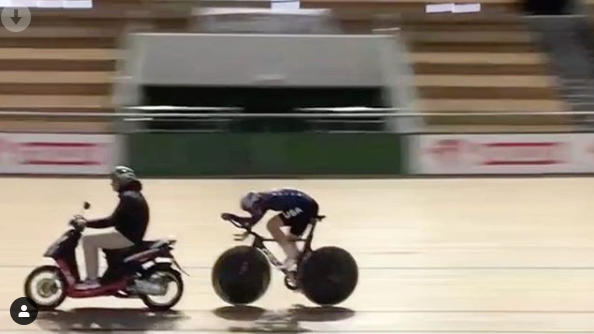
Christina Birch received her PhD from the Department of Biological Engineering in June 2015. Her thesis as part of the Niles Laboratory is “Identification of malaria parasite-infected red blood cell surface aptamers by inertial microfluidic SELEX (I-SELEX).“
BElong is immensely grateful for her thoughtful and candid answers here. We wish her the very best on all fronts, especially during haying season. *wink*
